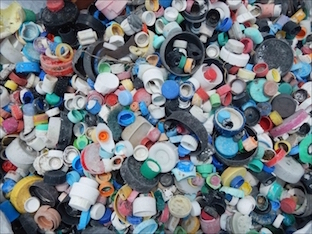 Following Earth Day, PCS was invited to present at the Way Public Library in Perrysburg about the plastic pollution problem that is affecting every waterway in our planet, from ditches to oceans. Plastic is the number one source of marine debris that we are finding during our local cleanups and that is reported internationally. Specifically, microplastics - plastic particles smaller than 5mm – are posing a significant threat to our waterways and the wildlife that depends upon them. When plastic breaks down, it doesn’t dissolve or biodegrade. Instead, it disintegrates into even smaller particles that make it almost impossible to remove and ends up being consumed by birds, marine animals, and potentially humans. It is estimated that by 2050, there will be more plastic in the oceans than fish.
Following Earth Day, PCS was invited to present at the Way Public Library in Perrysburg about the plastic pollution problem that is affecting every waterway in our planet, from ditches to oceans. Plastic is the number one source of marine debris that we are finding during our local cleanups and that is reported internationally. Specifically, microplastics - plastic particles smaller than 5mm – are posing a significant threat to our waterways and the wildlife that depends upon them. When plastic breaks down, it doesn’t dissolve or biodegrade. Instead, it disintegrates into even smaller particles that make it almost impossible to remove and ends up being consumed by birds, marine animals, and potentially humans. It is estimated that by 2050, there will be more plastic in the oceans than fish.
It seems everything we buy these days contains plastic. Did you know that cigarette butts (specifically the filters) are made from plastic fibers and remain in the ecosystem for over five years? Plastic has become increasingly popular in the past few decades as it is cheap and easy to produce. Single use items, especially food containers and utensils, are used for minutes but remain in our waterways for hundreds of years. Marine debris, particularly long-lasting plastic pollution, negatively affects the aesthetics (Beneficial Use Impairment #11 for the Maumee Area of Concern), ecological habitat, flourishing wildlife, human recreation, and even our drinking water. Our mission at Partners for Clean Streams, is to work to improve all the facets of our regional waterways. Our cleanups help to remove the debris, but our educational outreach helps to prevent it from ending up in our water system in the first place.
The EPA’s Earth Day theme for 2018 is Ending Plastic Pollution. This is a global problem with far-reaching affects. We all have role to play in plastic consumption. Here are some small, simple steps you can make each day to do your part for plastic reduction:
- Don’t use a straw when you go out to eat.
- Bring re-usable bags to the grocery store.
- Buy items in bulk and limit the amount of single-use items you purchase.
- Use refillable water bottles and coffee cups.
- Bring your own cutlery to work for lunch.
- Don’t buy hygiene products that contain microbeads that are almost impossible for water treatment plants to remove.
- Use glass containers for storing leftovers.
- Choose glass over plastic bottled beverages. Glass can be recycled an infinite number of times!
- Invest in a compost bin to eliminate the amount of plastic trash bags needed.
- Keep a Consumption Diary for a week to see how much plastic and waste you and your family are actually generating and make a goal to reduce it by 25 percent.
As with any behavior, making a conscious decision to follow these tips will eventually become a habit. Start with one tip until it becomes routine and then add another to make a big difference in a small way. The plastic pollution problem is not going away anytime soon, but we can all make choices to be part of the solution.



